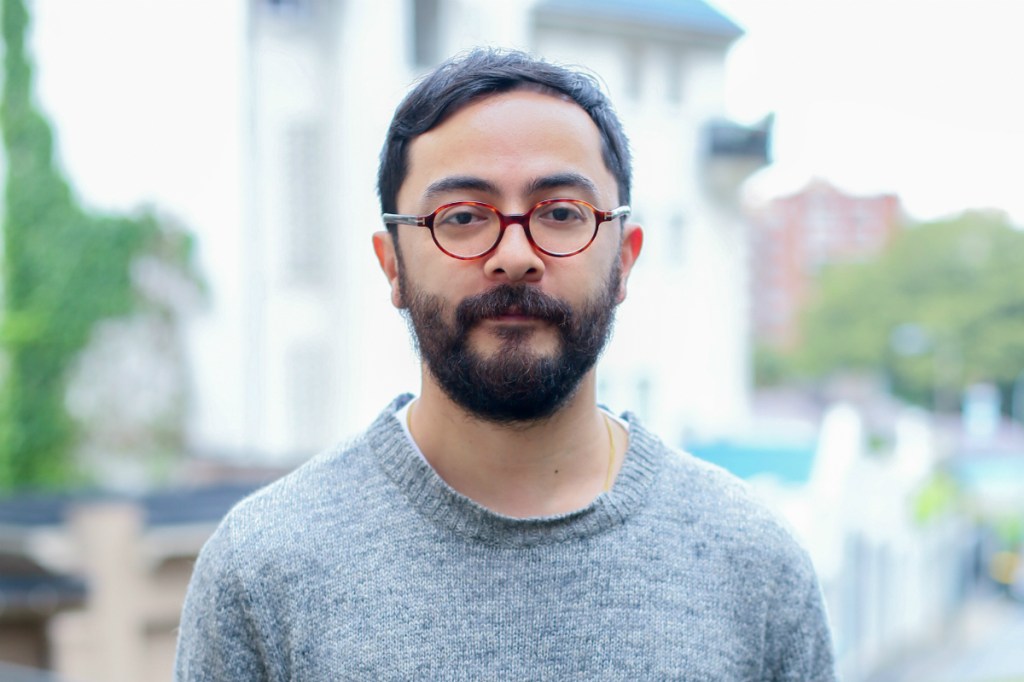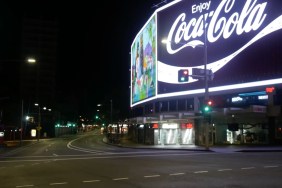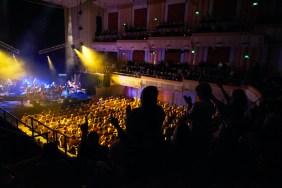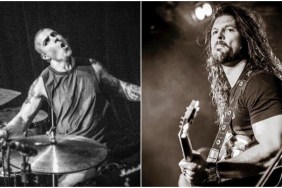Producer at ABC’s iconic music program Rage and host of his own weekly FBi Radio show Loose Joints as well as serving as Campaign Manager of Keep Sydney Open for the last six months, Tyson Koh is at the center of Sydney’s creative industries and nightlife. So when Barry O’Farrell brought in the lockout laws back in 2014 he was directly aware of the impact they had on the city, as many friends and acquaintances of his within that world were losing work and in some cases even losing their businesses.
While some would have us believe that the lockouts have been a success in curbing violence, Tyson believes the picture isn’t quite so clear. Instead of hailing the 40% reduction in assaults in Kings Cross as a victory, he suggests we should consider the fact that with foot traffic down 80%, proportionally violence is worse than ever. Never-mind the hundreds of jobs lost and over a dozen businesses shutting down.
Hoping to engage politicians and the community in an open discussion of alternate methods to address violence on our streets, as well as dispel some of the misinformation around the laws, Tyson caught up with Music Feeds recently to discuss the issue.
However before you go on to read what he has to say, make sure you like the Keep Sydney Open Facebook page and head here to sign their petition against the laws.
From Hyde Park to William Street #reclaimthestreets #sydney… http://t.co/SLM6PTmDXh IFTTT, Instagram pic.twitter.com/IMQkD5HMLs
— (resolute synth meat intensified) (@synth_meat) September 13, 2015
Music Feeds: What are the key objectives of Keep Sydney Open and what progress has been made toward realising them?
Tyson Koh: The objective is to implement measures that actually address violence rather than shift it or scrape it under a rug. We don’t want to improve the stats on violence, we want to eradicate it completely. We want solutions that accommodate decent party-goers, and beyond that we want to build a positive atmosphere in Sydney after dark. The streets are soulless now, and guess what? They’re still violent. Even with the lockouts removed we will have a lot of work ahead of us to rebuild what has been lost.
We’re talking to venue owners, promoters, artists and other stakeholders, getting their experiences and input into how to create a safe, fulfilling nightlife. We’re getting more of the public involved, letting them know that it’s okay to demand more from policymakers. We’re involved with data collection and stating our case to key people on the issue as well.
MF: There is a lot of opposition to repealing the lockout laws. How do you respond to those people who want to keep them in place?
TK: I simply ask those people to think about what their original goals were. It was never anyone’s intention to shut down nightlife or hurt culture; it was to make the inner-city a safer environment. So if that was our shared goal, why are we fixated on this “solution” which has done nothing to address violence? Instead violence has been shifted while driving down business and social activity.
Unfortunately lockouts have now been conflated with a fix on violence, which is categorically untrue.
MF: How do you answer their arguments that the lockout laws have dramatically curbed alcohol related violence since their imposition?
TK: It hasn’t. Naturally there’s been a drop in Kings Cross and St Vincent’s because hardly anyone goes out in the precinct anymore. A drop in assaults of 40% and a reduction in foot traffic of 80% actually means the assault rate has gone up in the Cross. Meanwhile one-punch attacks in Waterloo, Bondi Junction, an increase of crime at the casino, Newtown, Pyrmont… the lockouts have been a failure.
MF: The premise of the argument against seems to be “there is no other way to stop the violence”. Do you agree? If not what alternative measures would you like to see put in place in?
TK: I don’t know where this premise came from, that lockouts are the only way to reduce assaults. I can only assume that people are either misinformed or just simply enjoy the concept of a curfew. A curfew is entirely unnecessary when you consider the other options available to us.
Improving transport is key. If we can get people in and out of entertainment precincts efficiently throughout the night we will see major improvements. Having more marshals similar to the Take Kare street team will make a difference. We can improve the way licensing police work with venues. We can encourage more live music in venues and on the street which has been shown to have a positive effect on high concentrations of people. First-aid tents and better policing will help.
Contrary to popular belief, venues manage themselves quite well, but the manner in which disorderly patrons are ejected encourages violent individuals to roam the streets. An overlooked factor is the way venue staff and security are trained to deal with these problem individuals.
How about addressing the culture of violence in a public campaign involving NRL and MMA personalities? Really, there are at least 50 things we can do that will have a positive impact without the negative side-effects.
MF: The argument for the law curbing violence aside, what is being lost because of the lockout laws?
TK: Our reputation as a kick-ass city has certainly taken a blow. Talking to people who have come here from places like the UK, Europe, US, interstate… they’re laughing at us. The Harbour brings people to Sydney, but the reasons to stay are fast diminishing. We’re losing the vitality of a music scene that has spawned acts like Flume, The Preatures, The Whitlams, The Cruel Sea, Jagwar Ma, Kirin J Callinan and so many others. All of these acts don’t appear by magic, they come from a scene and that scene happens late at night when their folks are in bed.
Watch: Sticky Fingers – Ghost Town (The Specials Cover)
MF: Do you have any data or statistics that can quantify the loss caused by the laws?
TK: We are involved in a survey gathering the economic impact of the lockouts on both night and daytime businesses. The results we’re getting so far are very concerning. We’ve heard some 500 jobs have gone in the last 18 months and there have been roughly 15 venue closures. All of this I could stomach if violence had truly been solved, but it hasn’t.
MF: Do you feel the laws unfairly target certain sections of society?
TK: The lockouts absolutely hurt young people, venues and creative communities. The evidence shows that young people were less violent immediately before the lockouts and consume less alcohol than previous generations, so why a curfew now? Meanwhile, live music venues which contribute an immeasurable benefit to our city are thrown under the bus.
MF: How do you feel about Barangaroo and the casino being exempted?
TK: The casinos are controlled by a separate body and legislation to other venues, so they are literally a law unto themselves. We know these areas are hotbeds for assaults and self-harm, but they bring in too much money for the state government to want to curb. It’s not my desire to see the casinos restricted, but the idea of these casinos being the only sanctioned nightlife option in Sydney is, quite frankly, an insult.
MF: How is what is happening in Sydney now different to what happened in Melbourne a few years ago?
TK: Very similar, the only difference is the people of Melbourne value nightlife as a key ingredient of their city. Sydneysiders, understandably, do not because policy failures that stretch back decades have impeded a truly fulfilling culture after dark.
MF: How do you respond to news that others states such as Queensland and the ACT are considering similar laws?
TK: Don’t do it. Curfews are a simpleton’s solution lacking reason and innovation. My advice to those other states and territories is to extend themselves and implement ways to reduce assaults without affecting the majority of non-belligerent people.
MF: Malcolm Turnbull recently came out to say the his government will be making liveable cities a top priority for his Government. Do those statements inspire any hope in you? Do you think a change in sentiment in Canberra can affect policy in NSW?
TK: Who knows? One thing’s for sure, our view of creative communities, music venues and young adults needs to change. We need to recognise the vital role that younger people play in shaping our cities. Most people don’t stop and think about who really makes our cities great: musicians, cafe, restaurant and venue owners, chefs, designers… these are all young, talented and passionate people. Whether the recognition happens at a federal or state level, it doesn’t matter, but hopefully someone somewhere will show true leadership.
MF: More to the point though, do you think Sydney can be a liveable city with the lockout laws?
TK: Humans will live with whatever constraints are placed upon them, but unnecessarily prohibiting freedom is a slippery-slope to dystopia. So of course people can live here with lockouts, crap transport and limited entertainment, but those who yearn for more will move to Melbourne or further abroad.
MF: Do you think it’s likely the laws will be repealed?
TK: They will eventually, because the evidence keeps mounting of how unnecessary and ineffective they are. Meanwhile more and more people are voicing their concern that the perceived benefits simply do not outweigh the cost to our city’s reputation. Policy-makers will be forced to act.
MF: What can people do to get their voices heard and these laws repealed?
TK: Nothing will be done until people speak out. If you care about this you need to do more than just complain to your mates. Write a short note to your local MP, and if you can find the time write to state ministers like Mike Baird and Troy Grant. Talk to your family and friends and keep the issue alive.
Even easier though is joining Keep Sydney Open! We have a Facebook page you can like and an online petition to sign. Stay in touch and we’ll keep you informed of other things you can do in the months ahead. We can beat this thing!












